As a freelance historian, I have decided to keep my newsletter subscriptions free in order to share my writing with whoever has an interest for the research and reflections in these posts.
If you’ve been following along and have enjoyed my work, liking the posts by clicking the heart at the bottom of the page is easy way to support me.
For my second birthday, I was gifted a Fisher-Price play kitchen and it quickly became a favourite toy. It took my little sister for us to later bring out each other’s entrepreneurial sides at a young age and launch “Yummy In Your Tummy” restaurant, serving up delicious plastic food to family and friends. We even had business cards and menus, which I made on my new favourite computer program, Microsoft Word. Armed with a stocked pantry, we “cooked” up a storm in our fully equipped kitchen: microwave, stove, oven, and even a Playskool barbecue that smoked and made sizzling noises. Running a restaurant seemed like the dream job.
I’m not comparing playing with fake food in a fake kitchen to making real adult meals, but… I kind of am. In the sense that, at times over the last few years, I’ve found it really hard (or even impossible) to connect with the excitement and play that made me dream of what I could one day accomplish in a grown up kitchen.
We’re doing something a little different today. I’ve been inspired to reflect on my relationship to cooking because I have been reading some excellent, thought-provoking essays on the subject. And because said relationship has been rocky. Like down to rock-bottom rocky at times. Which was kind of weird and awkward while working on a cookbook. So I want to start by breaking down what it was like navigating this fluctuating relationship with cooking; then cover some of what I’ve been reading; to conclude with final questions and takeaways. If any of this resonates, I would love to hear from you.
Firstly, it’s relevant to note that, while not formally trained in any way whatsoever, I think I’m a pretty good cook, if a little slow (especially with baking). I can cook, it just takes a while to prepare my measured-out ingredients and get a handle on the steps, especially when I need to do multiple things at once. Because of this, I’m prone to stressing out in the kitchen when under a time crunch. This is probably not uncommon. In order to get passed this, cooking and hosting more are two big goals in my 2024 vision board. I unpacked this fear of not having enough, or losing, time in my February newsletter, “Avè tiempo.” It’s something that definitely goes beyond the kitchen.
Secondly, I do need to take a minute to paint a picture of what the last few years have been like in order to situate these reflections and make them mean something to someone reading them. Long story short, my mental health hasn’t always been in tip top shape due to a series of things surrounding, mostly, work. Turns out that yoyoing between immense workloads and forced unemployment, under the constant spectre of precarity while trying to make a living (and not feeling like a failure) is… very bad for you. When things were really dark, I wasn’t even able to muster up the energy to wash the dishes, let alone cook. It wasn’t about motivation (because that had evaporated completely): the thought of “wasting time” washing the dishes gave me so much anxiety that I would sometimes cry looking at the pile. Even though I wasn’t spending my time doing anything else. I was, in every way, stuck.
Meanwhile, I was supposed to be putting together this cookbook. As an oral historian, I was interviewing, collecting recipes, researching, and writing. I tested some recipes, but the cooking was not my main task. To share what we were learning, I would often post about Molisan food and traditional recipes on my Instagram, making me feel like a complete phony. This dissonance seems to have become the norm for social media: everyone reminds you that we are only seeing their “highlight reel.” Is it harder to come to terms with that in our own lives?
And so my relationship to cooking, naturally, followed the ups and downs of my mental health. It’s interesting because I fell into the same patterns when I was both unemployed and overworked: skipping meals and/or ordering out. It makes sense because these periods brought with them two different kinds of lows.
The curiosity and joy I experienced playing with the Fisher-Price kitchen could not have been further from my reality in those moments.
Digging Deeper
I only really understood this two weeks ago, when I posted this note:
“This is what happens when I’m not stressed or anxious.” I’m a little ashamed to say that it took four years for that lightbulb to go off. Because I would equate my lack of interest in cooking to laziness or fatigue, I questioned my own authenticity when I showed up in my kitchen. It was a strange and vicious circle.
If you would like to support my work further, you can
(it’s like giving a tip) or share Crivello with a friend! Thank you for following, commenting, sharing your stories, and even simply continuing to open these emails week after week.
The subconscious reflections started months ago, when a couple of essays came out arguing for the importance of learning to cook. In “Ultra-Processed Love: why learning to cook will save your life,”
states:Cooking needs to be reframed. We have to stop thinking about preparing food as wasted time. It’s a necessity like drinking water and breathing air. We can’t give that time away. It belongs to us and cooking real food is time well spent. We can make memories in the kitchen- I do it all the time- and eating real food is investing in our ability to recall those memories later in life.
Beyond our own memory-making, Michelle’s main point was that, in learning to cook, we simultaneously challenge the food system, which is “rigged against us”:
When we don’t know how to make meals from simple ingredients- not other products- we are setting ourselves up to be exploited. Learning to cook for yourself is a fundamental human experience and critical if you want to avoid all the dangers of ultra-processed foods.
While corporations work to convince us that their products offer convenience and freedom, the reality is, they don’t actually care how we spend our time. Just how we spend our money.
responded to Michelle’s piece in “Learning to Cook Isn’t Just a Life Skill Anymore. It’s a Rebellion Against Our Failing Food Systems”:Cooking isn’t just a life skill anymore. It’s a rebellion against those very corporations. A rebellion I want to be a part of.
A rebellion I want you to be a part of too.
It means learning what to do with pantry staples that don’t make you want to cry with boredom. It means understanding the basics of food flavours and structures so you can adapt them to what’s already in your cupboards.
I would love to tell you not to worry if you can’t cook. But hand on heart, I can’t.
Growing up Italian, a lot of this has already been instilled in me by my family. My paternal nonni, for example, believe in making anything they can from scratch. My nonno tends to a huge and fruitful garden. My nonna prepares and freezes whatever produce she can so that they (and we) can eat from the garden all year long. My nonno makes ricotta that my nonna uses to make gnocchi and ravioli. They make wine, cheese, cured meats. When we go over for lunch, especially in the summer, my nonna always points out everything that came from their garden or their own hands. It is a point of pride, but also a lesson: this is the most nourishing way to eat.
Fundamentally, I absolutely agree. But we go back to the question of time, which they have in ample supply, as they are both retired.
In an Instagram post soon after the above essays were published,
offered a different take: “Not everyone needs to learn how to cook if they don’t want to, if that’s not their role.” Because in her vision of a healthy community, we actually wouldn’t all have to cook. She continues: “everyone deserves people around them who would be happy to get up at the crack of dawn to make sure we all have dope vegetarian food to eat.” We shouldn’t all be getting up at the crack of dawn to throw together a pathetic lunch because we ate the portion of pasta that was supposed to be leftover the night before (I refuse to believe this only happens to my boyfriend and I).And that made me think of my maternal nonna. She lives in the basement of “the compound,” as we jokingly call it. The floor below my parents, who are the floor below mine and my sister’s apartments. Every week night, she prepares dinner for my parents. Rather than all eating separately, they share one meal that no one has to rush home to make after work. Because, like my other nonni, she is also retired. On weekends, her kitchen is “closed,” so that she gets a break, too. When we have a particularly hectic week, we eat downstairs with them. All my nonna asks for is enough notice to prepare those extra plates. There’s always enough food for all of us, should we need it.
We learn from our nonni, who learned from theirs, etc. As
writes in “On food and hospitality”: “The sacrality of hospitality informed also the Roman culture, and afterward the generosity of the Mediterranean people, and reached us with the lavish banquets you might have had the chance to experience in Southern Italy.” My nonni have always shared what they have grown, what they have made; my parents continue that tradition in their own way, by sharing what they buy at Costco.Like Giulia, “The sense of hospitality is ingrained in my family, in the very walls of this house where I am now living.” I find myself wondering where I fit in all this. I want a role and I want to be consistent. I’m scared that I know I can’t right now - until things get a bit more stable - but I do my best.
Some weeks look like the note I shared above. Others are a little less dazzling. But I’ve been out of the funk of rock-bottom for quite some time, which is why I’ve been able to untangle the mess of a relationship I developed with cooking. Because good doesn’t have to mean complicated, and simple doesn’t have to mean lazy:
I started enjoying food more when I stopped putting so much effort into making it. Lentils every day for a week? Sign me up! Unfreezing some peas with butter and putting them over rice for dinner? That’ll hit the spot! When I make overnight oats, I don’t portion it out into cute little jars. I stick everything together in giant batch, fill a tupperware to the brim, then them every day every day until they’re gone. It’s freeing to make food simple again.
in “Meal repeating: the joys of doing the same thing over and over”
It really has been freeing accepting that the vibes will change week to week. Sometimes, I’m happy having the same lunch every single day. When I feel inspired and I have the time, I’ll look up a recipe to try. In writing this piece, it also clicked that my nonni are total meal repeaters! And no one cares! The food is good, it’s made with love and fresh ingredients.
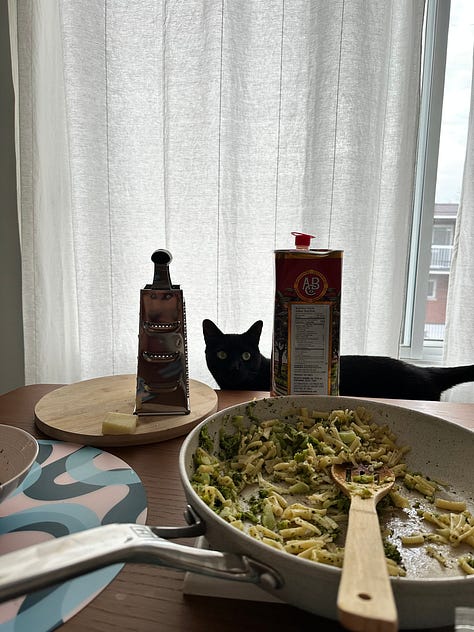
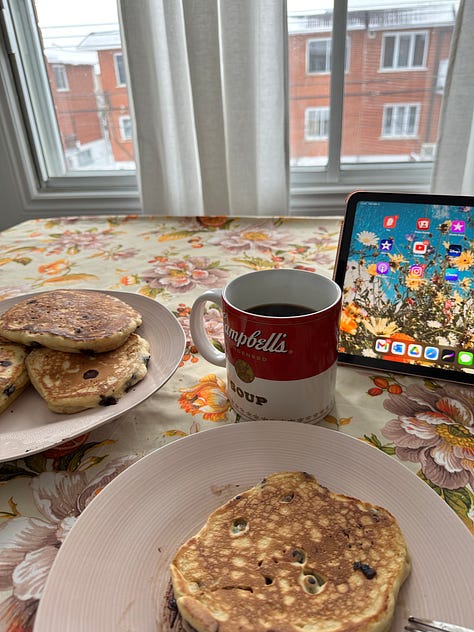
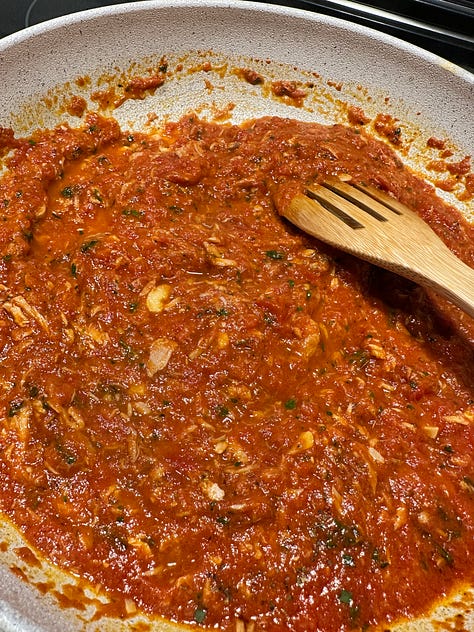
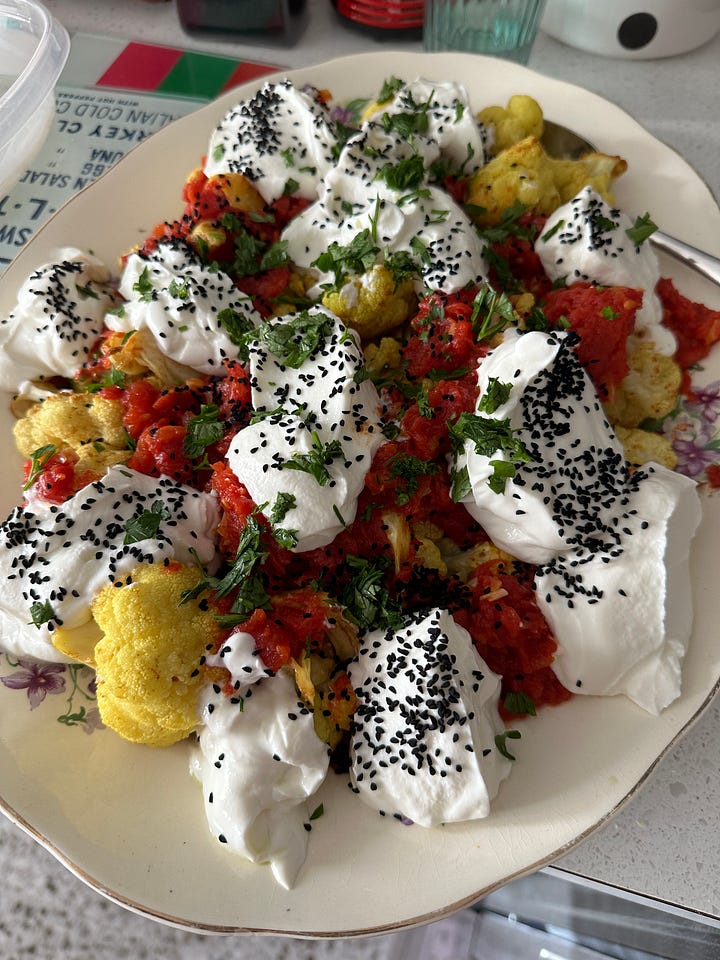
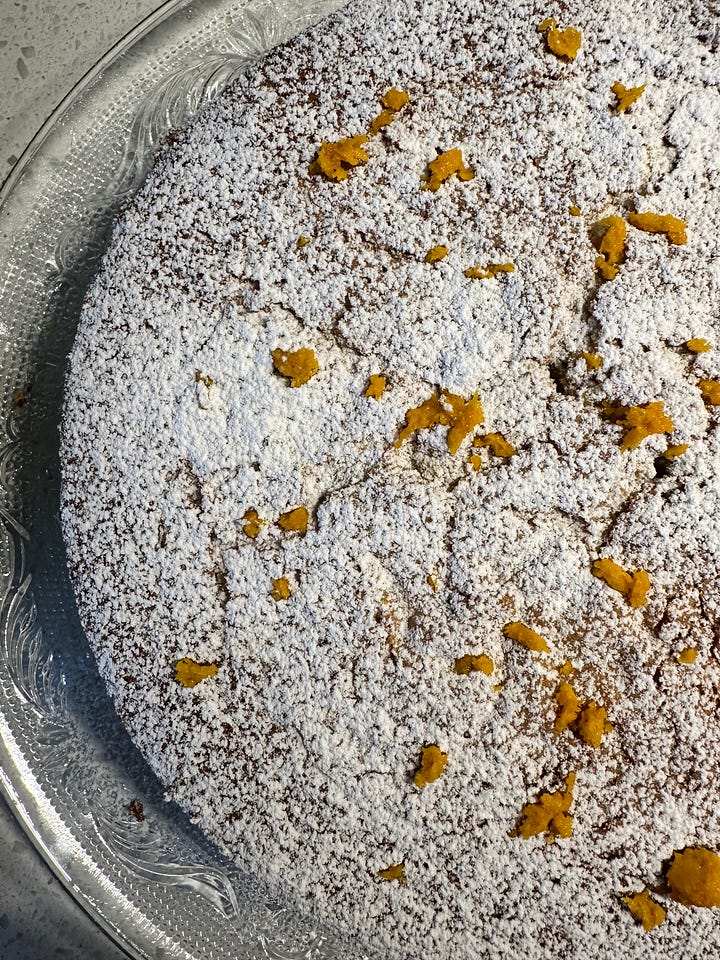

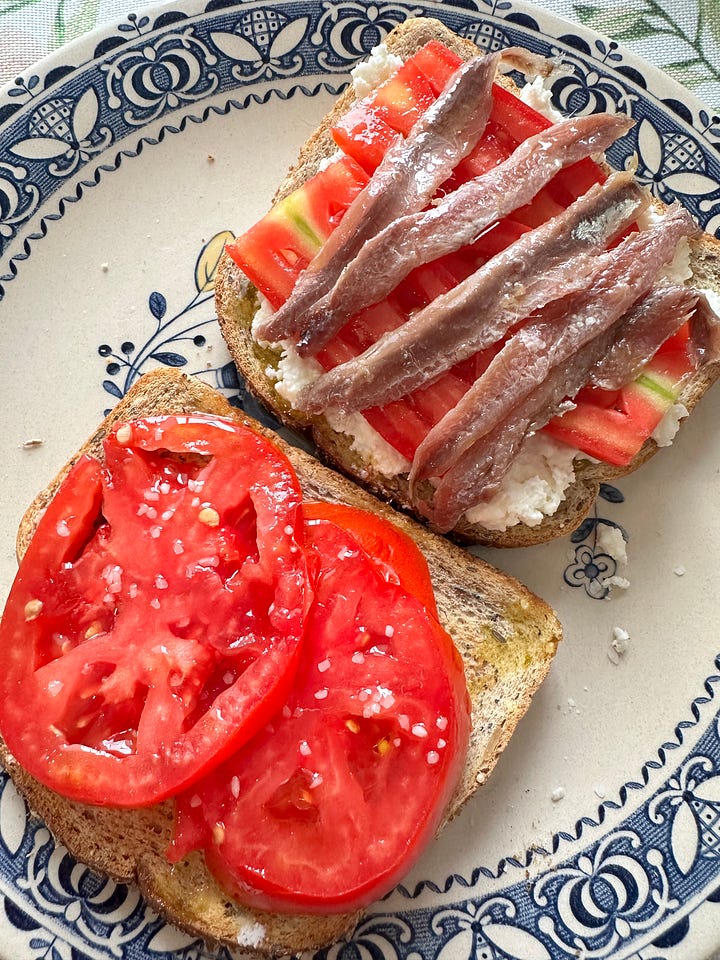
Do I think it’s important to learn how to cook? In our current reality, and for most people,1 yes. We should take the time to make the best choices within our means because the food system is rigged against us. But cooking alone doesn’t solve the systemic problems we face. What I know for certain is that the [food] system did not save me these last four difficult years. Community did. I would not have been okay if my parents and nonni did not feed me when I needed it, physically and emotionally; I would not have gotten better if my partner did not stand by me, even though he had to take on more when I could not; I would not have recovered my hope and motivation without friends continuing to show up when I got quiet.
If some of you are reading this, I can’t thank you enough.
Cass
What is your relationship to cooking? Has it changed over time?
For a long time now, I’ve been thinking about how we cook. When doing the interviews for the cookbook, I was reminded time and time again that cooking was, often, community work. It was rarely an individual act. How do you think that affects what cooking and eating means to us?
Share your favourite meal repeat!
News
I’ll be hosting a free online workshop for Accenti magazine’s series “Workshops to Build Community” on August 23 at 12:30 - 2:00 pm EST. “Making a Cookbook for and from Community: Reflecting and Writing Activities”: Pulling from historical, autobiographical, and non-fiction writing, we will explore how to write recipes through storytelling. In this workshop, we will write about and around recipes directly tied to our own communities. Learn more and register here.
I’ve updated my shop with new items! Pre-order silk scarves and tea towels featuring some of my artwork.
I started a subscriber chat to share other projects, resources, links, updates, and sneak peeks on upcoming work. Join here.
Because I recognize that some also have the means to eat well without cooking, anything from subscribing to good quality meal delivery services to hiring someone to cook for them.





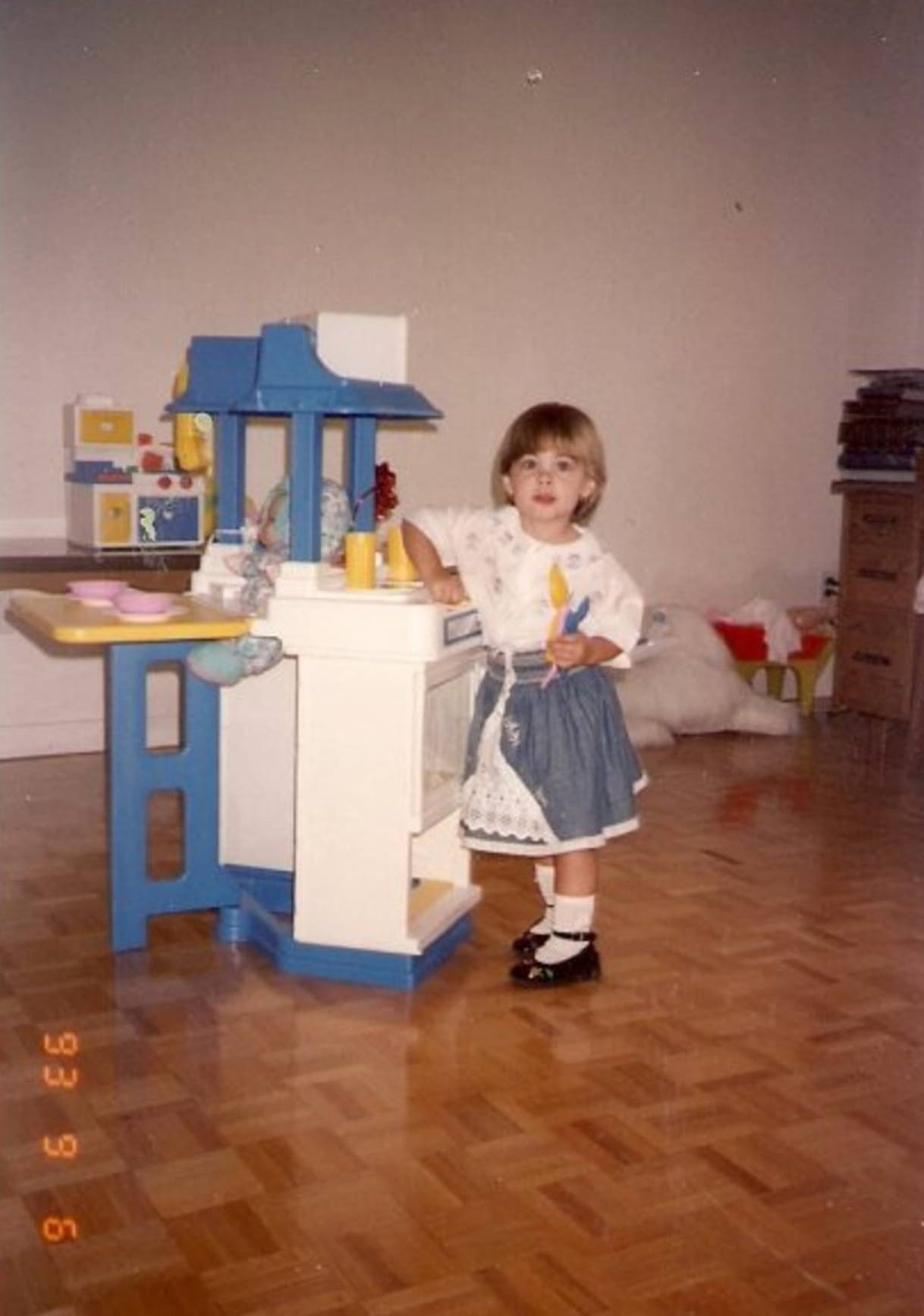
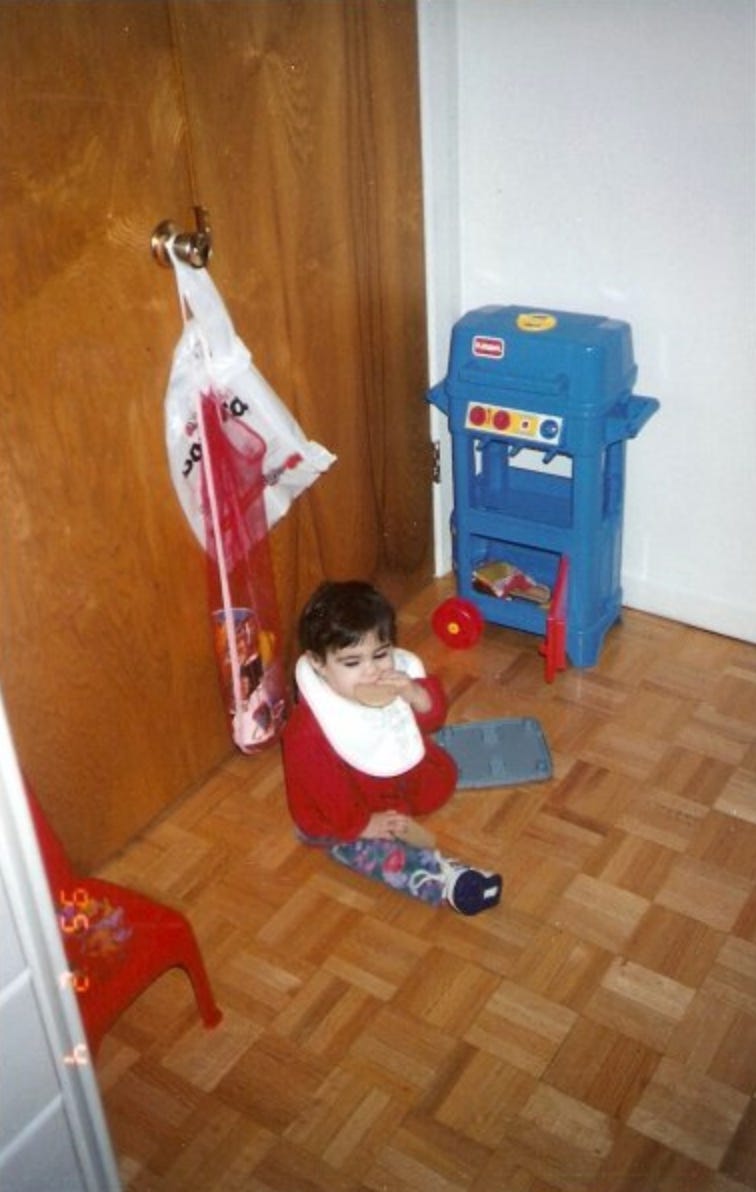

This so super interesting to read, and thank you so much for sharing my latest article.
I loved the description of how you and your family live: it reminds me so much of how we live now, with my grandma downstairs and my parents next door.
I think it's important to accept that our relationship to cooking can change with life and circumstance. In true Italian style (my Scottish family has lived in/outside Rome since 1970), my parents live below my daughter and her family, and I live less than a 10 minute walk away. During lockdown we established once a week family meals, and when everyone is working my 91 year old father most often volunteers to cook. From time to time, we all do an extra batch cook for everyone's freezer. In the winter months, self-care for me is making sure my freezer is full of home-cooked soup, roasted veg, lasagne, lentils, so that during the week when I get home tired and cold, I always have something delicious to eat. One of my friends doesn't give birthday or seasonal gifts, she just cooks and bakes for us, and when someone is sick, she'll fill up their freezer. I can happily eat the same thing day after day, and living alone, I often do - cooking for other people makes me try new recipes, or rehash old ones.
Cooking for me now is all about love, and sharing, and choosing to do that, but when I had a small child and was doing all the cooking every day for my extended family, it was often just a chore and an endless grind, with the pressure of having to make endless decisions every day. Even now, when my beloved nieces come and stay with me, I triumphantly get one meal out of the way and then am crushed by the thought that in a few short hours I'll have to make another one.